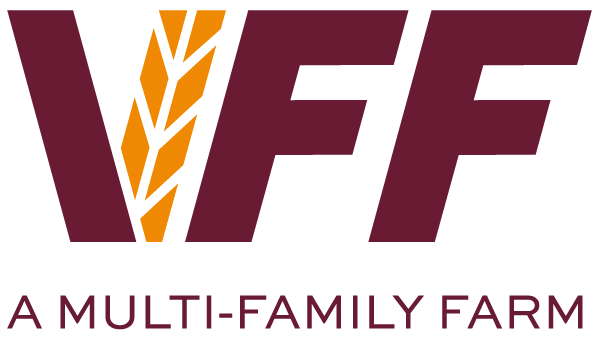About Shallow Water Ag Conditioned manure services
Brian and Myles Vulgamore, Patrick Heim, and Luc Valentin founded Shallow Water Ag in 2008 to supply conditioned manure for VFF’s acres and other customers’ acres. Conditioned manure, also known as composted manure, is raw cattle manure that has been broken down through the process of composting, resulting in a nutrient-rich fertilizer that’s beneficial for soil health and plant growth. It’s particularly well-suited for a no-till environment and can help ensure top yields at a lower nutrient cost.
BENEFITS OF OUR PARTNERSHIP
SUSTAINABLE & ECO-FRIENDLY
VFF uses conditioned manure because it’s more eco-friendly than raw manure and synthetic fertilizers for several reasons. First, conditioned manure is a natural source of nutrients that have been broken down through the composting process, which makes it more readily available to plants while reducing the risk of nutrient leaching and runoff. Second, composting manure reduces the amount of methane emissions, a potent greenhouse gas, that would otherwise be released if the manure were left untreated. Third, using conditioned manure in place of synthetic fertilizers reduces the demand for energy-intensive manufacturing processes required to produce synthetic fertilizers, thus reducing carbon emissions associated with their production. Finally, using conditioned manure promotes healthy soil microbial activity and enhances soil structure, which can improve soil water retention and reduce erosion.
Cost Effective
While the upfront cost of composting may be higher than simply applying raw manure or synthetic fertilizers, the long-term benefits of conditioned manure can outweigh the initial investment. Conditioned manure typically contains a higher concentration of plant-available nutrients, meaning that farmers may need to apply less fertilizer or less soil amendments to achieve the same results as raw manure or synthetic fertilizers. Additionally, conditioned manure can reduce the risk of nutrient leaching and runoff, which can result in cost savings related to regulatory compliance and potential environmental remediation costs.
Less Weeds & Pathogens
After raw manure is collected from the cattle pens, it’s dropped into windrows where it begins the natural decomposition process. The rows are mechanically turned to increase aeration and manage moisture content, during which the internal temperature exceeds 140° F, eliminating weed seeds and pathogens. In contrast, synthetic fertilizers and raw manure can introduce weed seeds and pathogens to the soil, as they have not undergone the same level of treatment as conditioned manure. Additionally, conditioned manure can enhance soil health and promote the growth of beneficial microbes that can help to suppress weed growth and fight off harmful pathogens.
